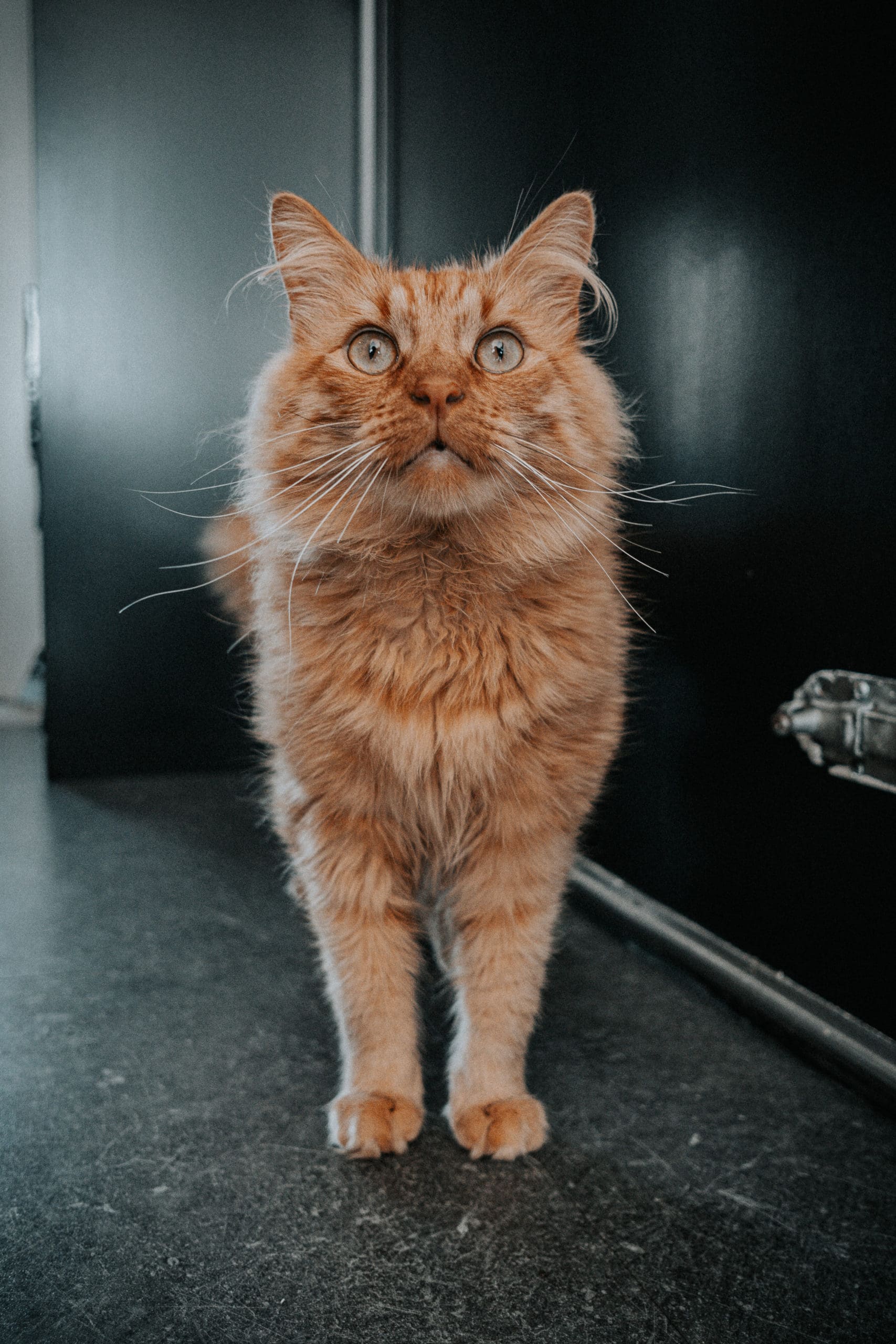Just like humans, cats are living longer than they used to. Improved nutrition, more “indoor cats”, and more frequent veterinary care compared to years past all add up to an older, healthier feline pet population. This is great news for cats and their people, but there are still some prevalent misconceptions about aging cats and the extra attention they need. Let’s look at how to best care for senior cats to keep them happy, comfortable, and healthy.
Let’s get right down to business. Veterinary professionals want you to know that the assumption that any pet “slowing down” is just “old age” is far too much of a blanket statement. It makes it easy to shrug off health problems that are individual and, often, easily managed and improved. This might be especially true with cats given that they are naturally more guarded about showing pain or illness than dogs are. If you can easily see that your cat is declining, there could be something significant going on.
 It’s Not Just Bad Behavior
It’s Not Just Bad BehaviorOlder cats sometimes begin unwanted behaviors in the house. Your cat isn’t being a jerk. These are often the result of pain or disease. Your cat might be pooping outside the litter box now because high-sided boxes are becoming painful for stiff joints to step into. Urinating in inappropriate places might have far more to do with kidney function or a UTI than with a newfound interest in marking territory. Keep an open mind, and always see your vet to rule out medical problems.
Your cat’s check-ups are more important than ever in their senior years. Ideally, veterinarians would love to see their feline patients begin to have wellness exams and geriatric blood panels every six months. The reason is simple. The earlier that the most common and serious health problems are caught, the more easily the illness can be managed or treated. Of course, this is great for your cat, but it’s also easier on you. Cat lovers know that their little lions aren’t always great patients when it comes to advanced illnesses that require medications. Best to treat and prevent early than to incur the sass of a cat who already feels poorly.
As with any senior citizen, osteoarthritis is to be expected to some degree. Pain management options for kitties are not the same as for dogs. Cats have fewer options that are safe for them, so never try to treat pain on your own. There are some prescription pain relievers that your vet can dispense as well as cold laser therapy.
Cats who are eating lots but losing weight, their coats are looking unkempt or dull, or who are excessively thirsty might have overactive thyroid disease. This is very common in cats. Essentially, they eventually appear to be “wasting away” as they become emaciated. When untreated, it can also cause hypertension, stroke, blindness, and death. The good news is that hyperthyroidism is very easy and affordable to manage.
Also known as CKD, chronic kidney disease is a leading cause of death in cats. There is no cure for it, but there are diets and medications that can help to slow its progression and treat or manage secondary illnesses like hypertension that could result in stroke or blindness. Diagnosing kidney disease with a blood test is a critical first step. Symptoms include increased drinking and urinating, weight loss, decreased appetite, vomiting, depression, and weakness. As with hyperthyroidism, the weight loss can progress to emaciation in advanced stages.
Not even cats are immune to the dreaded diabetes mellitus. In fact, it’s common for it to develop in both cats and dogs, especially if they have been overweight or eaten a poor quality diet for a long time. As with humans, treatment will require a modified diet and, often, insulin injections. Symptoms include weight loss, increased thirst and urination, increased appetite, weakness, loss of coordination, vomiting, and eventually a loss of appetite.
Grooming
As cats age, reaching some areas of their bodies for grooming can become more difficult. Find a brush or comb that your cat likes, and give them a hand! This will prevent mats and help to keep coats in top shape by distributing body oils.
Litter Box Access
Traveling up and down stairs can become painful due to arthritis, so it’s a great idea to place a litter box on each floor of your home.
Access to Favorite Places
If it has become difficult for your cat to jump up to a window sill or onto a favorite piece of furniture, make these simple joys in their day easier by providing a more gentle way for them to reach their cozy spot.